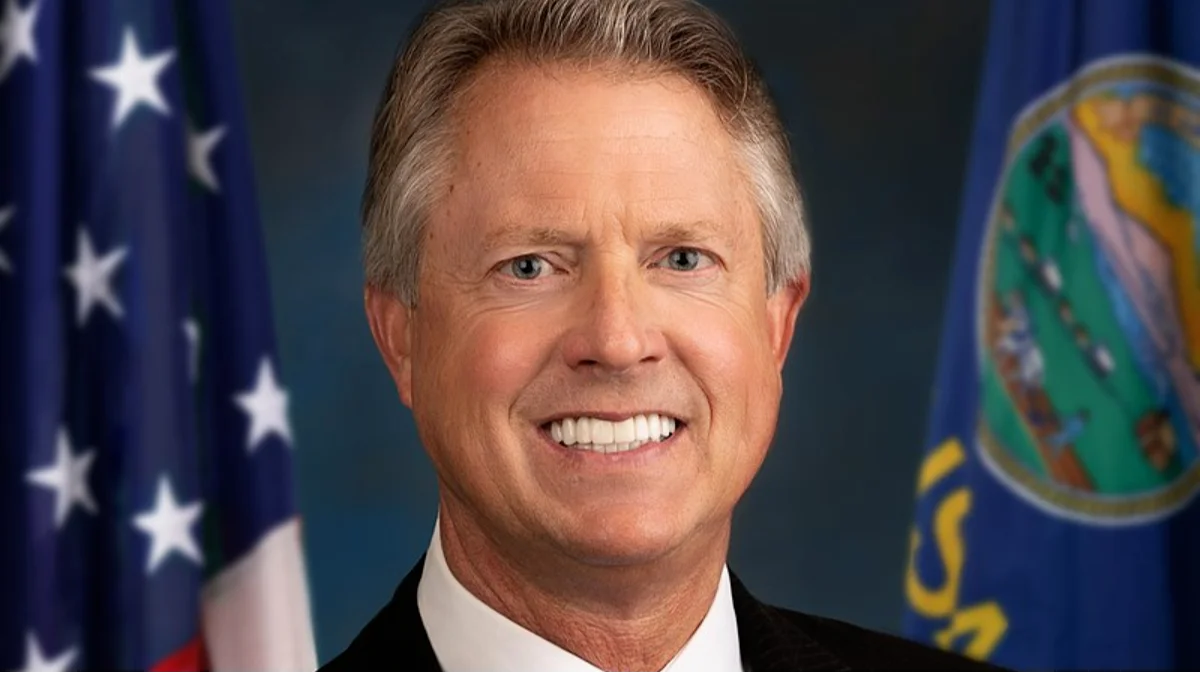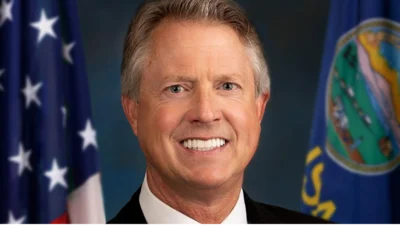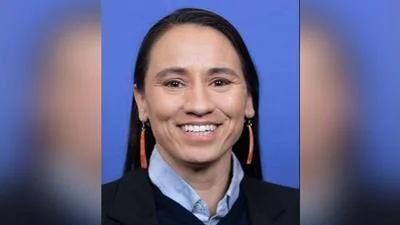Senator Roger Marshall, US Senator for Kansas | Official U.S. House headshot
Senator Roger Marshall, US Senator for Kansas | Official U.S. House headshot
U.S. Senator Roger Marshall of Kansas spoke with Julia Manchester from The Hill at the Health Next Summit to discuss the state of healthcare in the United States, sharing insights from his background as a practicing OBGYN and former hospital administrator. Marshall highlighted his experience in rural medicine, hospital management, and overseeing county health departments, emphasizing the practical challenges of implementing the Affordable Care Act (ACA).
Discussing the impact of the ACA on healthcare administration, Marshall said, “So the ACA is something that I had to implement when I was running the hospital, as well as medical practices, the worst nightmare in my life, trying just to organize and, you know, taking nurses off the floor and turning them into data entry people and seeing doctors having to spend more and more time as data entry. So I think it gives me a real perspective of what’s really driving the cost of healthcare up.”
Addressing the ongoing government shutdown, Marshall commented, “Yeah, I don’t think anybody knows that. And… I don’t really believe that the ACA is the real issue. I think it’s really a political issue. And that Chuck Schumer got in such trouble with his base, and I know if it’s his base or AOC’s base, for not shutting the government down. You know, they want to do something to respond to President Trump. I mean, he’s had some incredible successes, the One Big, Beautiful Bill, the most consequential legislation of our lifetime, you know, perhaps as well. So he had to do something.
“And then they have taken this hostage, which is the Covid subsidies. And I think that’s a big misconception. Not many Members of Congress understand the difference between the original subsidies versus these additional COVID subsidies, where we went from the government paying 80 to 90%. You know, the problem with the Affordable Care Act is that it isn’t affordable. That’s the real problem here. The real problem is the cost of healthcare. And the friends across the aisle think they just keep throwing money at it. If we just keep throwing money at it, but regardless of what we do, premiums are going to go up 20% right? Regardless of what we do, premiums are going to go up 20%.
“And then there’s so much fraud being involved with these COVID subsidies. When we started having people with zero pay, in having their insurance, we saw fraud go way up. So there are people out there that are making a living. All they need is a person’s name and their birth date, and then they’re selling them this insurance product, but the person doesn’t even know it. I think, like 30-some percent of people on these Covid subsidies don’t even use their insurance, which means they don’t know they’re on it, as opposed to having to make a monthly payment, then they would say, wait a second, where is this payment going? So we have to address the fraud, and we have to address the true problem is that the Affordable Care Act is not affordable.”
On Republican messaging regarding the shutdown and healthcare costs, Marshall said: “Yeah, and I think it is very challenging, because it’s a very deep issue. And look, I want everybody to have healthcare as part of my MAHA, you know, pillars is that everyone has access, meaningful access to affordable healthcare as well. I think that they’re asking the wrong polling questions. I think if you ask polling questions, like if you knew that these Covid subsidies, that there was 25 to $50 billion of waste, fraud, and abuse, would you suggest that we fix it? Or just keep going on as is? So I think we’re asking the wrong polling questions, but it’s very hard to message because it’s a complex topic.”
Marshall also discussed his “Making America Healthy Again” (MAHA) initiative and outlined four pillars: precision agriculture and healthy soil; food as medicine; meaningful access to affordable primary care; and addressing mental illness and neurodegenerative disease in children. He acknowledged progress has been slow but noted efforts are ongoing both through executive action and legislative packages.
“Yeah, well, you know, we’re on Trump time now. So it’s not fast enough. It’s very hard to move this needle around. You know, you think about America. You want me to drive down the cost of healthcare? We have to address America’s health. 70% Americans have a chronic disease right now. 20% of our children are on a prescription drug. 30% of our children are obese. 40% of our children have a chronic medical problem.
“So it’s very, very hard to turn around the health of America. So what I’ve tried to focus on is the four pillars... So my four pillars are our number one is precision agriculture and healthy soil. And then number two would be food as medicine. Number three is access, meaningful access to affordable primary care. And then number four, address the mental illness and the neurodegenerative disease of our children as well.”
Marshall addressed vaccine skepticism by pointing out Congress has focused heavily on vaccines recently but said he supports decisions made between patients and their physicians: “Yeah, you know, that’s a tough one...I’m very much of the opinion in valuing the patient-physician relationship and informing patients...So I think they lied about the origin of the virus...But I’m so ready to move on and let parents and decide with their doctors decide what’s best for their children.”
When asked about reliable sources for medical information Marshall said: “Yeah, how about your doctor...So I think your doctor, you know, the nurses typically do a really good job as well...So, you know, just quit. Quit it. Quit it. Take it all with a grain of salt and ask your doctor.”
On women’s health issues including maternal mortality rates and diabetes during pregnancy Marshall explained: “Well, you know, what’s driving maternal mortality? Let’s start there....Guess what the number one cause of maternal mortality is now? So it’s suicide and a fentanyl overdose....The other thing that’s exploded...is diabetes of pregnancy....But when they come in with type 2 diabetes all your risk of complications doubles and triples.”
Marshall also discussed diet's role in health outcomes: “Yeah all the above Certainly 70% of America’s calories are ultra-processed food....The Diabetes of pregnancy is certainly linked to obesity but then for some women they have a genetic predisposition to it as well.”
Addressing challenges in patient advocacy and continuity in care due to trends such as ‘drive-through medicine’, Marshall highlighted difficulties accessing specialized care even for his own family: “That’s a tough one...My wife has an asthma problem....It took me six weeks to get her to see a doctor up here....And she ends up seeing a PA....So we went to this drive-through medicine...and ER visits...but I think you’re on to something that it is the relationship part of this.” He emphasized self-payment models or direct primary care systems may offer better patient-doctor relationships.
###





 Alerts Sign-up
Alerts Sign-up